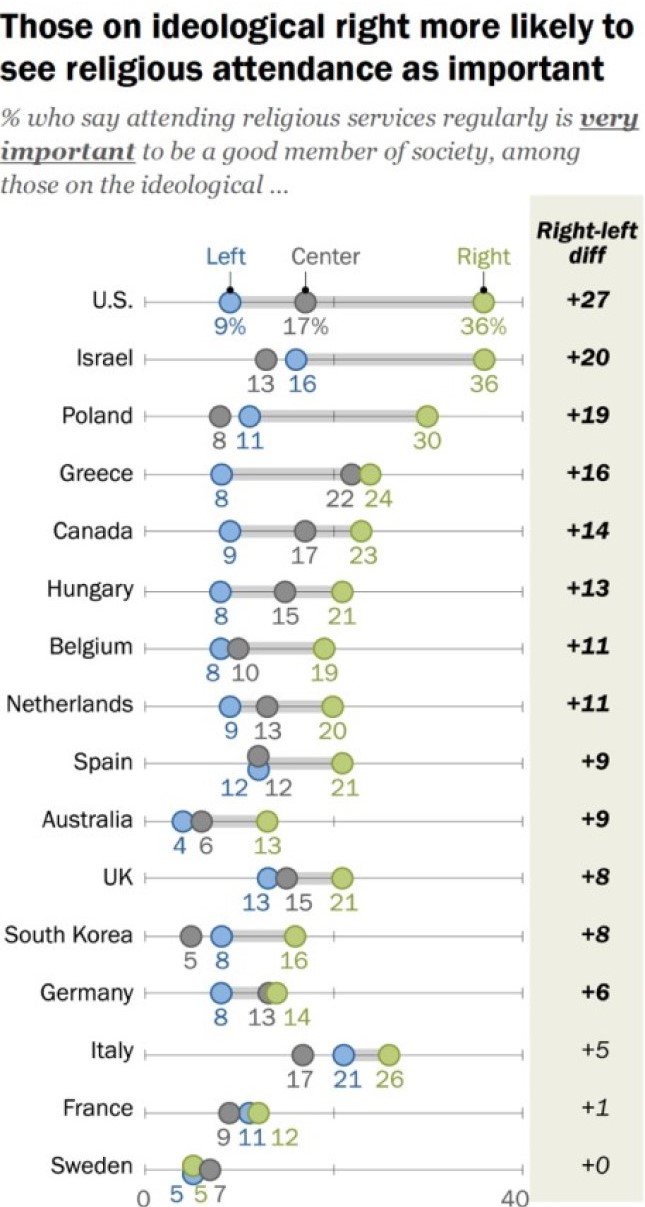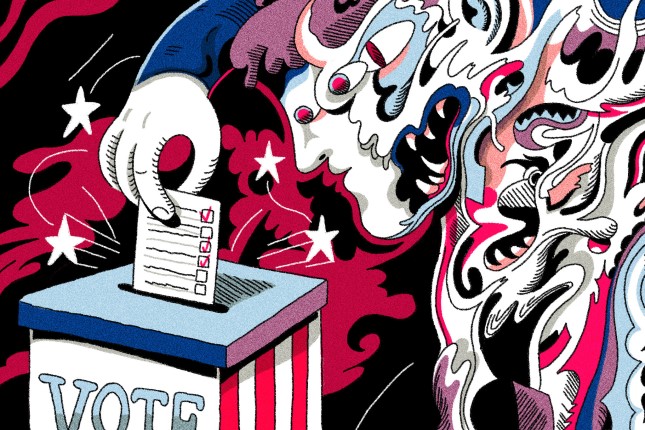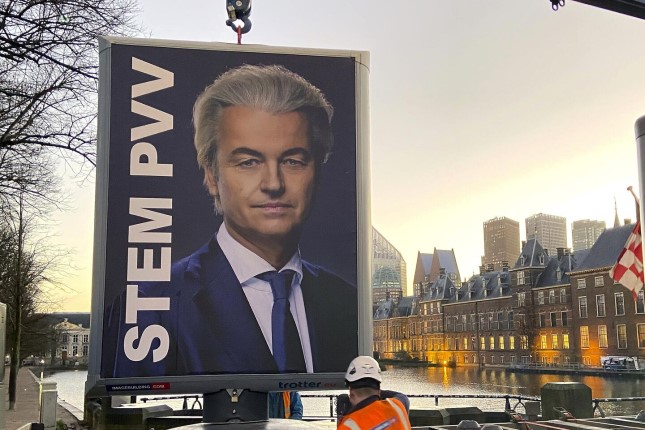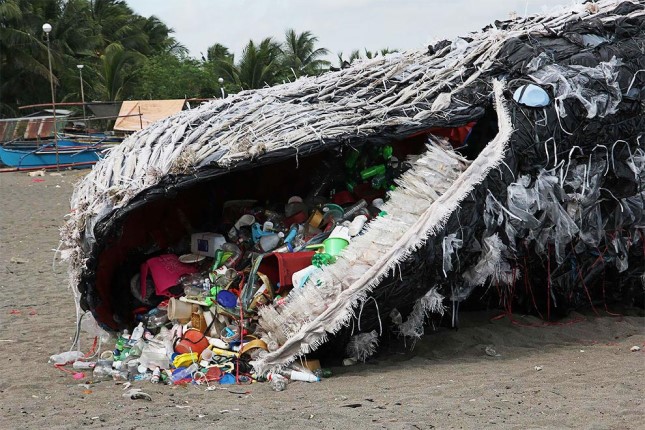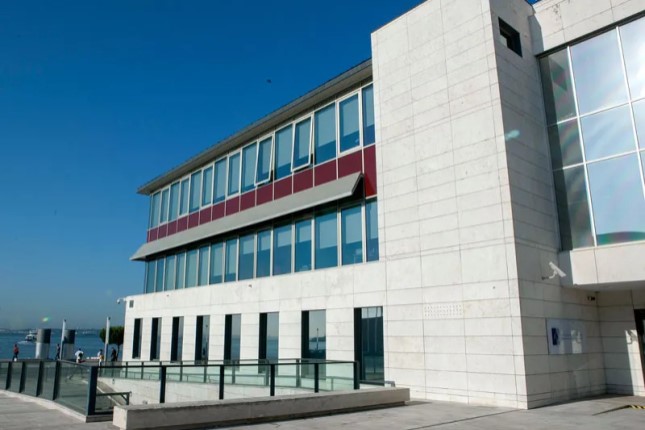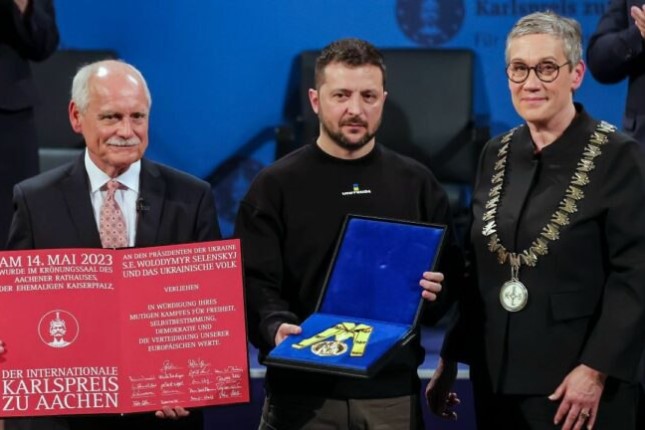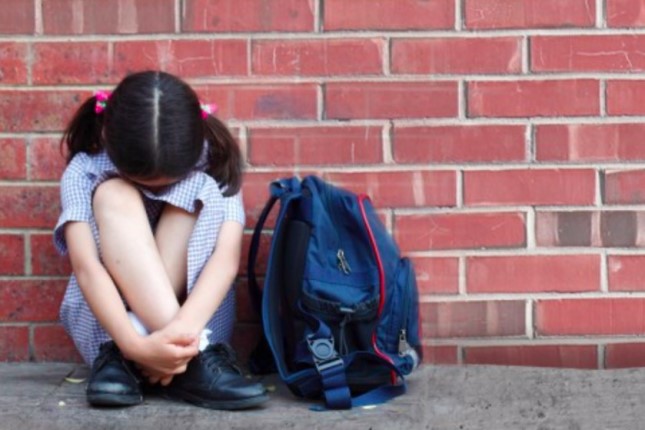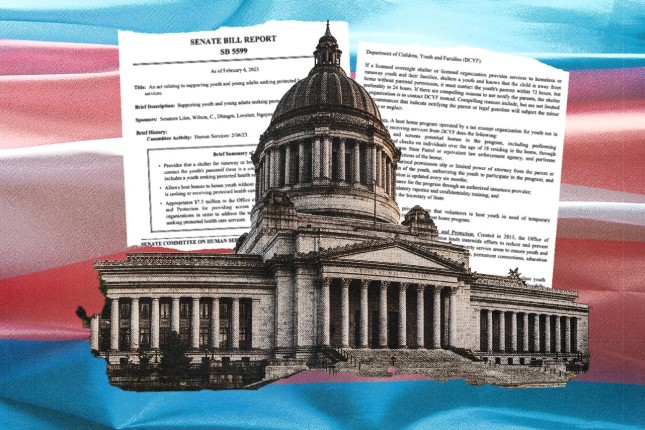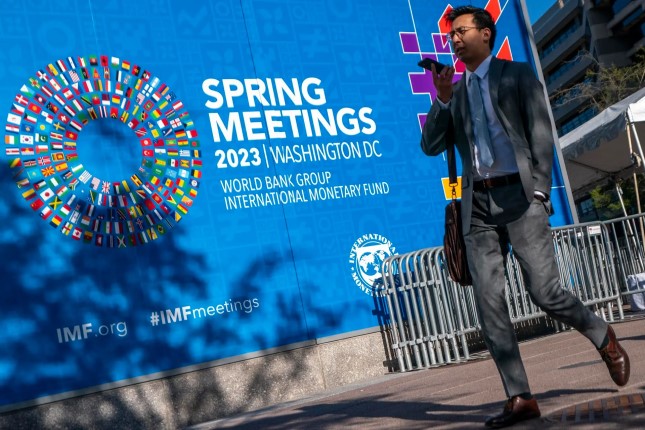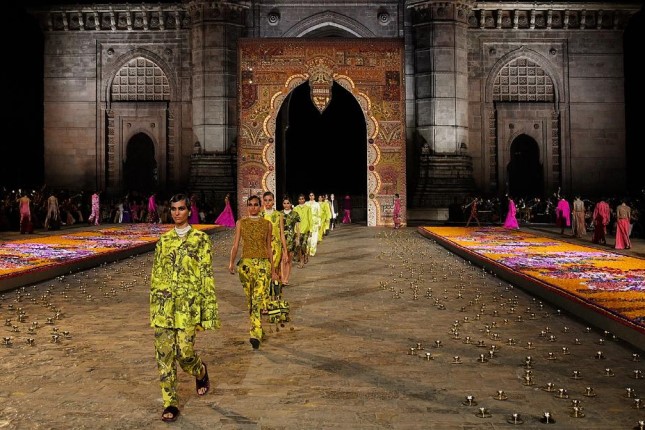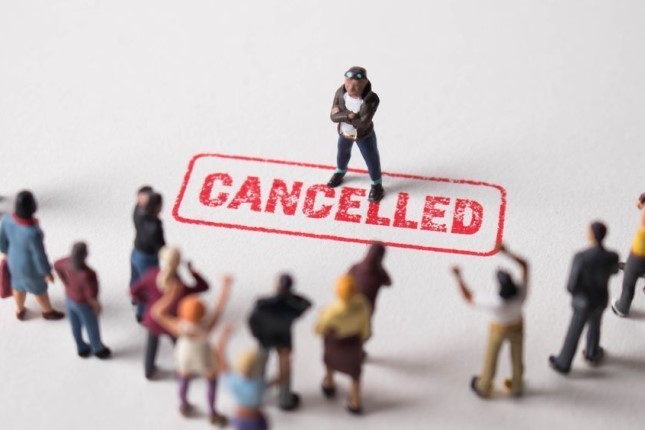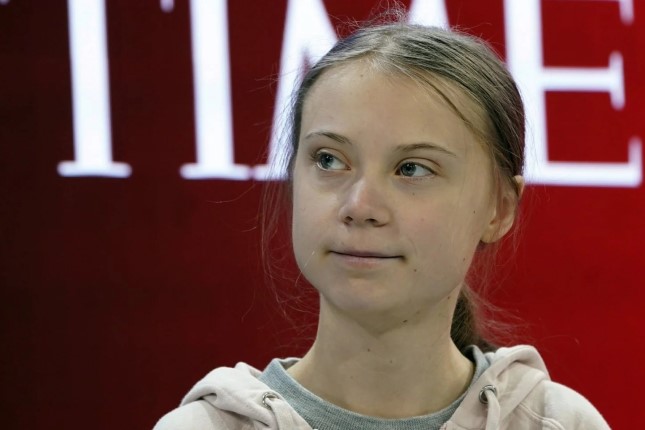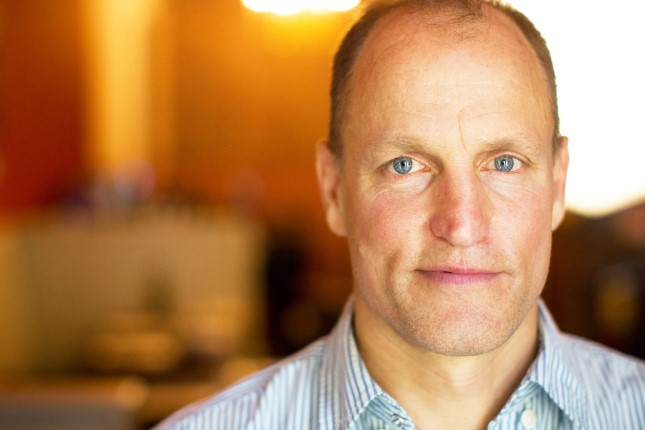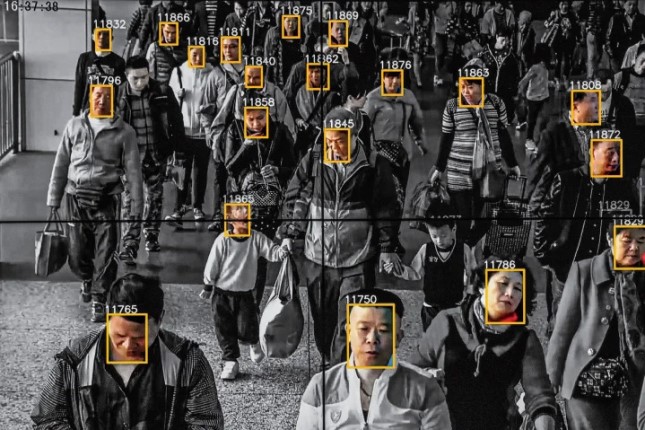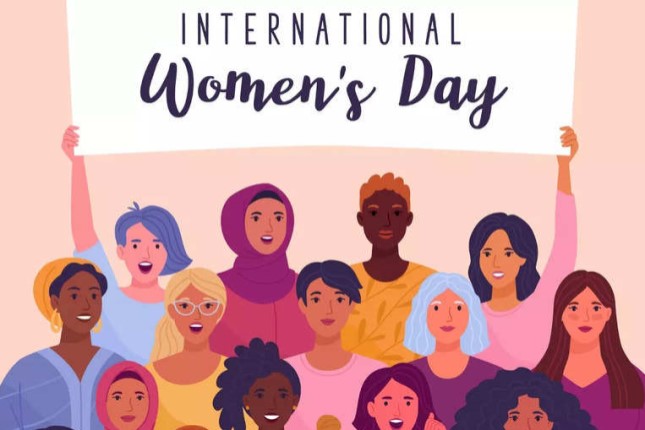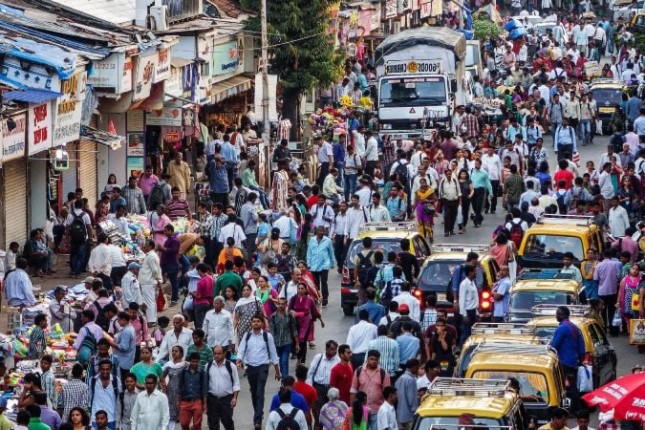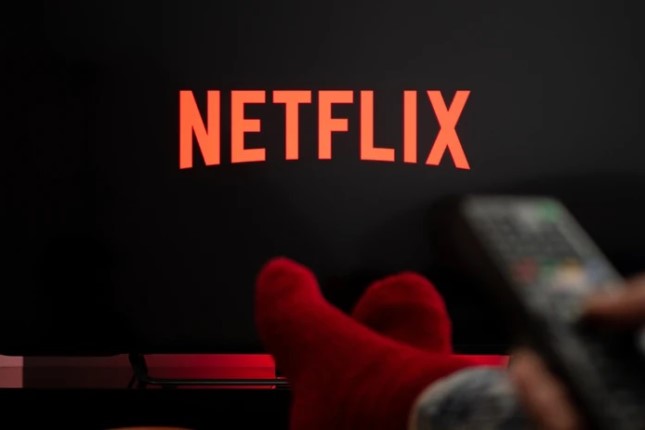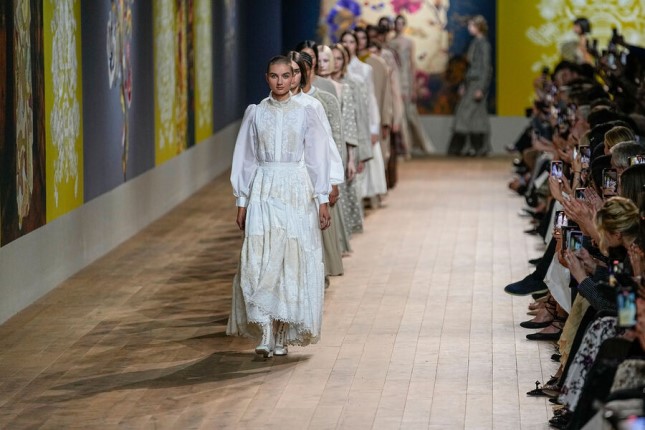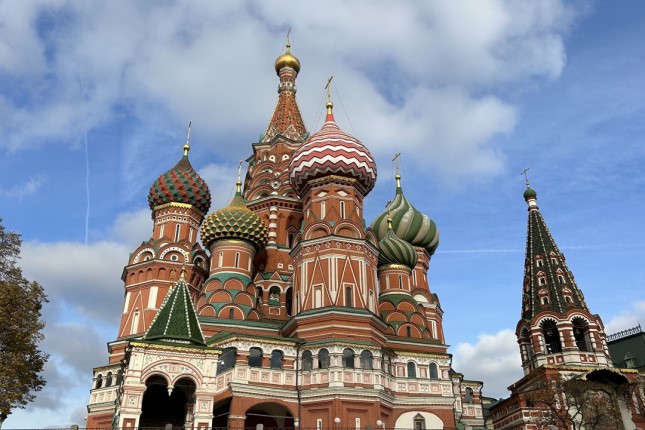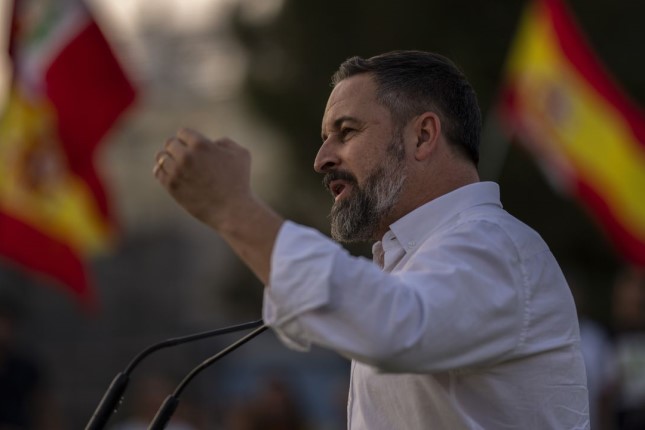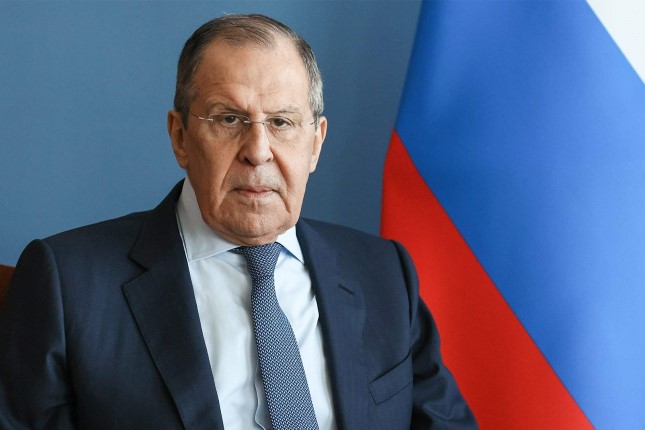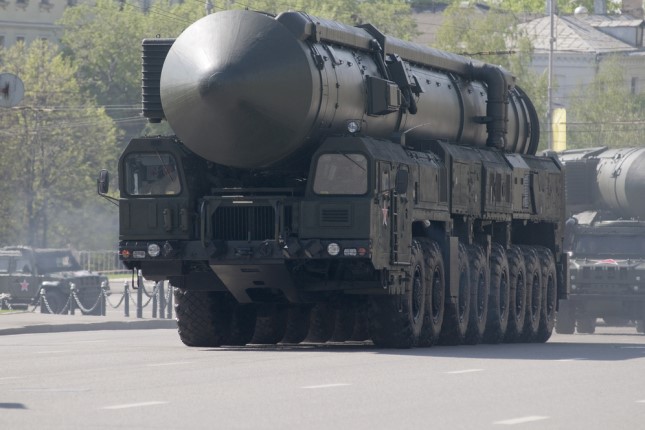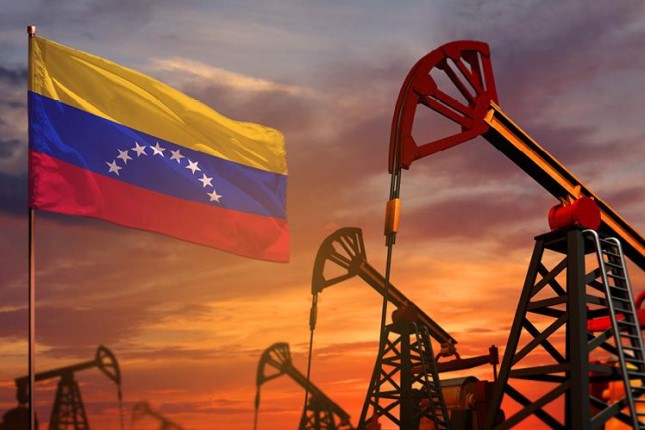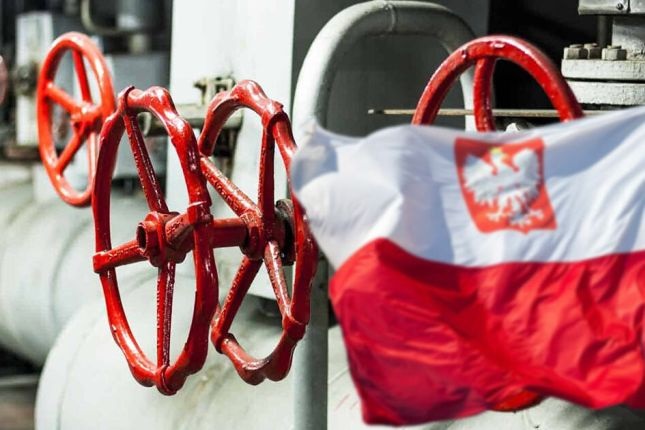What makes someone a good member of society?
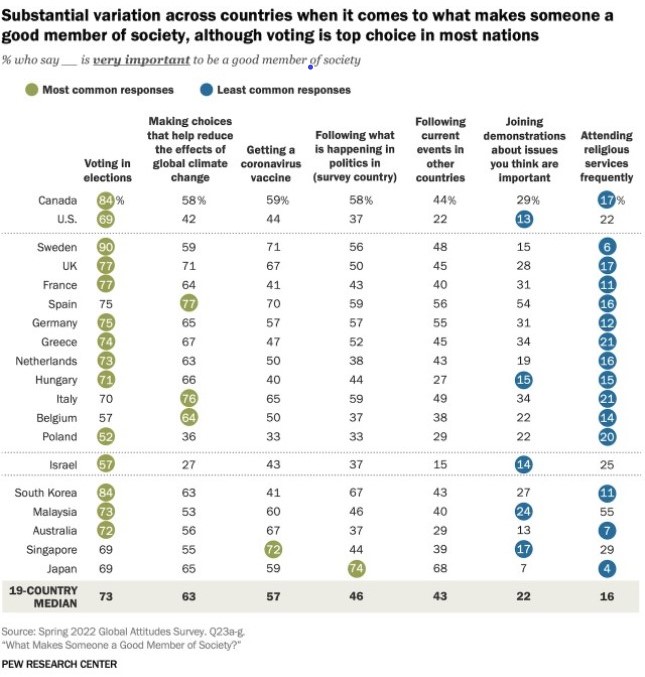
The Pew Research Center polled 19 advanced economies across North America, Europe, the Middle East, and Asia-Pacific to find out.
According to the survey, voting is the most important aspect of being a good member of society in all countries. In fact, in most locations, around seven in ten or more say it's essential to vote in elections to be a good member of society. The share of people believing this is exceptionally high in Sweden, Canada, and South Korea.
A commitment to improve the environment and promote public health is also regarded as critical: making choices to reduce global climate change and obtaining a COVID-19 vaccine are highly essential.
Fewer people consider religious attendance to be essential for good citizenship. A median of 41% believes it is essential, with only 16% thinking it is especially important.
However, there are significant cross-national differences on this issue. While attendance at religious services is only in the single digits in Australia (7%), Sweden (6%), and Japan (4%), it is a majority among Malaysians (55%), over three-in-ten Singaporeans (29%), and a quarter among Israelis. In the United States, 22% state attending religious services is critical to being a good citizen, and around half of White Evangelicals (49%) say this. Climate-consciousness
Making choices that help mitigate the effects of global climate change is important to almost two-thirds or more of adults in each country questioned. In most of these areas, the majority says it is imperative.
People in Spain, Italy, and the United Kingdom are particularly prone to believing that reducing the effects of climate change is critical to being a responsible citizen. However, Israelis and Americans stand out for having a higher proportion of those who believe climate change is not essential (32% and 24%, respectively).
However, many countries have significant ideological differences about the importance of combating global climate change. This is because those on the ideological left are more likely to say it is crucial to be a responsible member of society than those on the ideological right.
This is especially evident in the United States, where 66% of self-identified liberals believe that making choices to lessen the effects of climate change is vital for being a decent citizen, compared to 19% of conservatives.The COVID-19 vaccine
Age is closely related to views regarding the importance of vaccination in almost every country studied. This is because those aged 50 and older are far more likely to say it's critical to be a responsible member of society than younger individuals.
In the Netherlands, 70% of persons aged 50 and over believe vaccination is essential, whereas just around a third of those aged 30 to 49 (30%) and under 30 (32%), respectively, believe the same. The difference in attitudes between old and young adults is at least 30 percentage points in South Korea (+35), France (+32), Canada (+31), and Belgium (+30). Still, it is in the double digits in every other country analysed.
Political preferences also play a significant role in whether people believe vaccination is necessary to be good members of society.
In every country, people who support the present ruling party or parties are considerably more likely to say it is critical to be vaccinated as opposed to those who do not support the ruling party.
This difference is most clear in the United States, where 64% of Democrats and independents who lean toward the Democrats think vaccines are very important, compared to only 20% of Republicans and independents who lean toward the Republicans.
Religion
A minority in the most advanced economies surveyed described attending religious services as necessary for contributing to society.
Only in Malaysia, Singapore, and Poland does a majority believe that religious attendance is at least somewhat significant. And, even across these three countries, the share describing it as very irrelevant varies widely, from 55% who say this in Malaysia to fewer than a third who say the same in Singapore (29%) and Poland (20%).
In fact, in most countries, fewer than a quarter say it's critical to attend services to be a responsible member of society, and in Australia (7%), Sweden (6%), and Japan (4%), fewer than one in ten hold this view.
Do advanced economies lack a higher purpose?
Interestingly, most polled people believe that democracy and voting are the most fundamental values that can significantly improve society. It is evident that religious attendance is declining in most countries, while democracy appears to be taking its place.
The survey raises the questions of whether democracy can truly replace belief in God and whether voting can truly replace worship - as the survey suggests—or whether the exaltation of democracy, in fact, signals a profound existential crisis and a lack of a greater purpose?
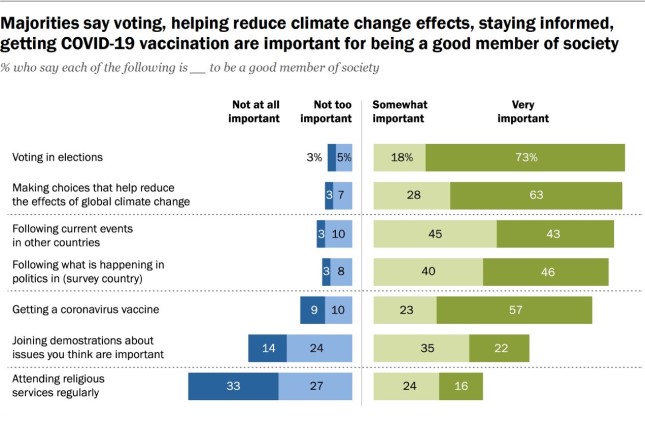
Typically, the answer to what it means to be a good member of society would be reached through a philosophical approach. Still, our current culture emphasises politics over all other factors.
Getting a vaccination to prevent death and mitigate the effects of climate change boils down to one thing: survival. Even in the most developed countries, survival is the primary goal, which is both astonishing and somewhat contradictory.
What is especially surprising is that morality, which is commonly taught by various religions, is not mentioned in the poll. Examples of morality that are not mentioned include how to love your neighbour, how to assist those in need, how to strive for peace, and how to end wars.
The findings suggest that today's politically proper behaviour, such as being vaccinated to prevent death and avoiding natural disasters caused by climate change, is a new code for goodness. Nonetheless, fear appears to be driving the underlying value system. The goal is to stay safe and alive at any cost, as though we are in denial about our own mortality.
To retain democracy, citizens must have a higher purpose and values to fight for. Unfortunately, the analysis indirectly suggests that many highly developed countries lack this. Climate change policy and vaccinations are both reactive rather than proactive, attempting to mitigate harm rather than promoting a vision of an ultimate goal that can endure even if democracy fails.
